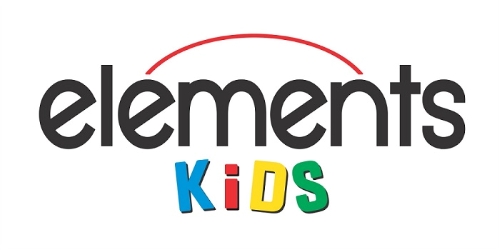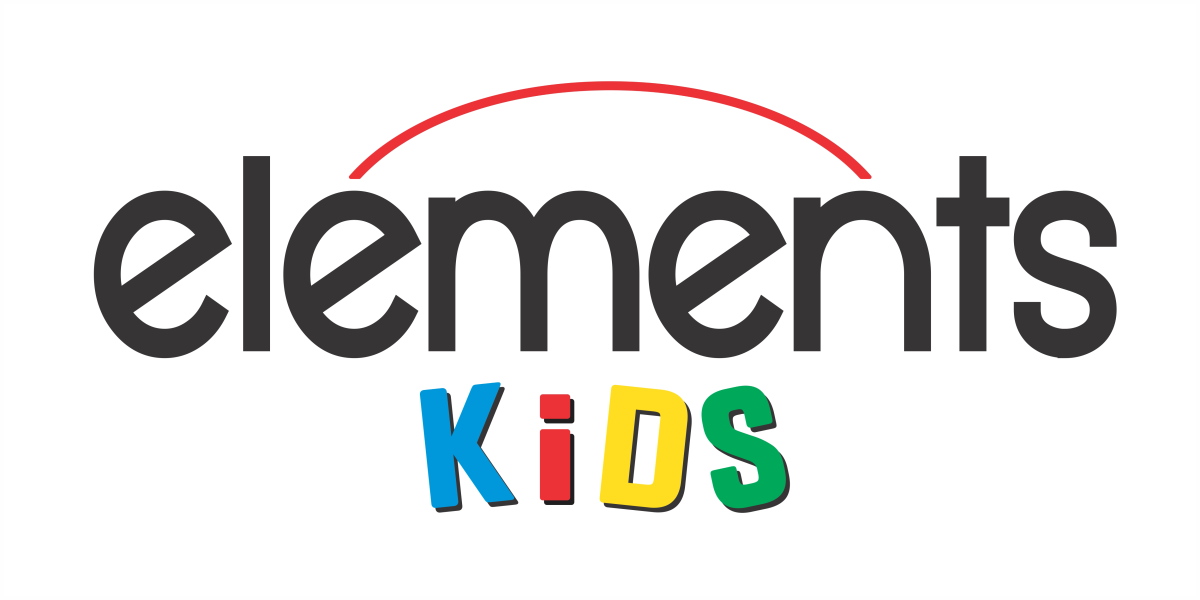-
The Montessori program at Elements Kids focuses on the development of learning abilities in the pre-schoolers. The emphasis is on enabling the child to imbibe and develop the qualities and skills needed to progress to the next level in his/her relationship with the environment and people. The program spans five distinct areas that constitute the prepared environment for the child.
-
Exercises of Practical Life
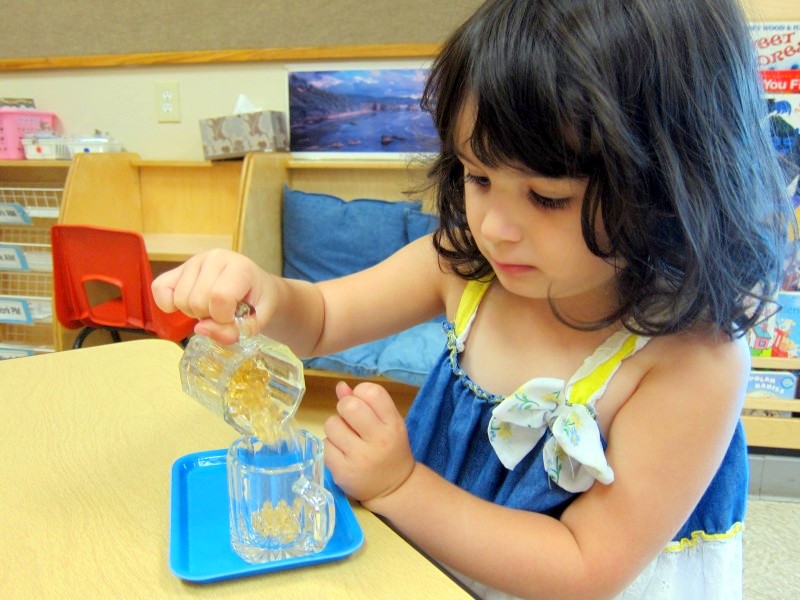
Practical Life activities help children learn how to care for themselves and their environment. These activities help the child to become more independent, leading to greater self-confidence, and the ability to face new challenges. Practical Life exercises include lessons in grace and courtesy, care for self, and care for the environment. Activities often include pouring water, polishing, sweeping and dusting, buttoning clothes, folding napkins, watering plants, pounding spices, cleaning and food preparation.
The purpose of these activities is to enhance co-ordination, concentration, independence, and indirectly prepare children for writing and reading.
-
Sensorial
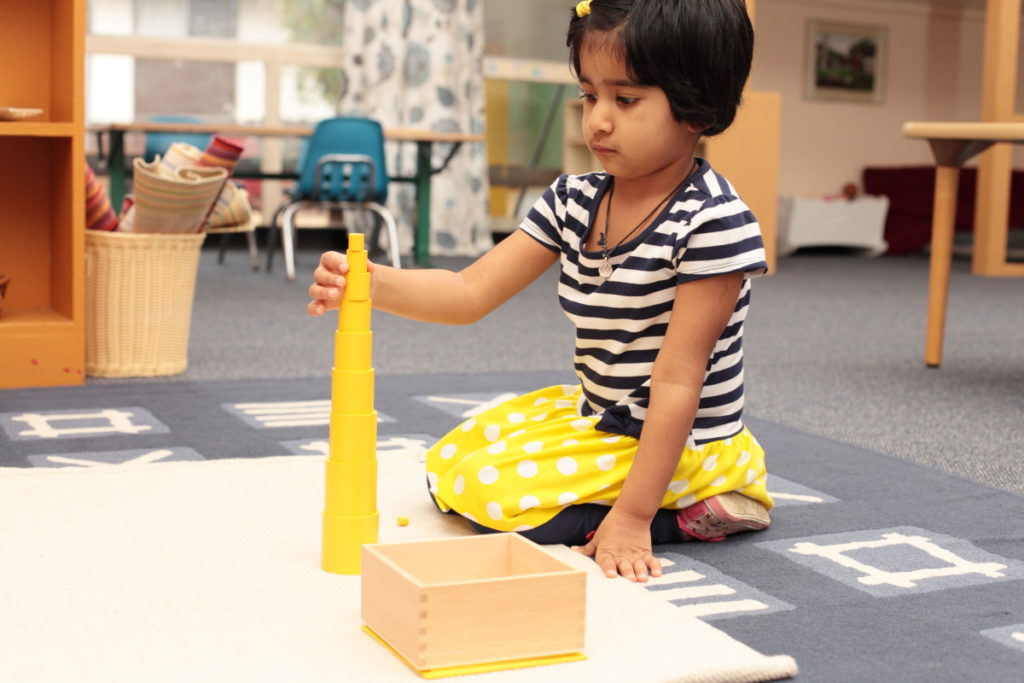
Sensorial materials help children express and classify their sensory experiences. The purpose of sensorial activities is to aid in the development of the intellectual senses of the child, which develops the ability to observe and compare with precision. There are sensorial materials that focus on visual perception, tactile impressions, auditory sense, and olfactory and taste perceptions.
Activities often include matching and grading materials that isolate the sense of sight, sound, touch, taste and smell.
-
Language
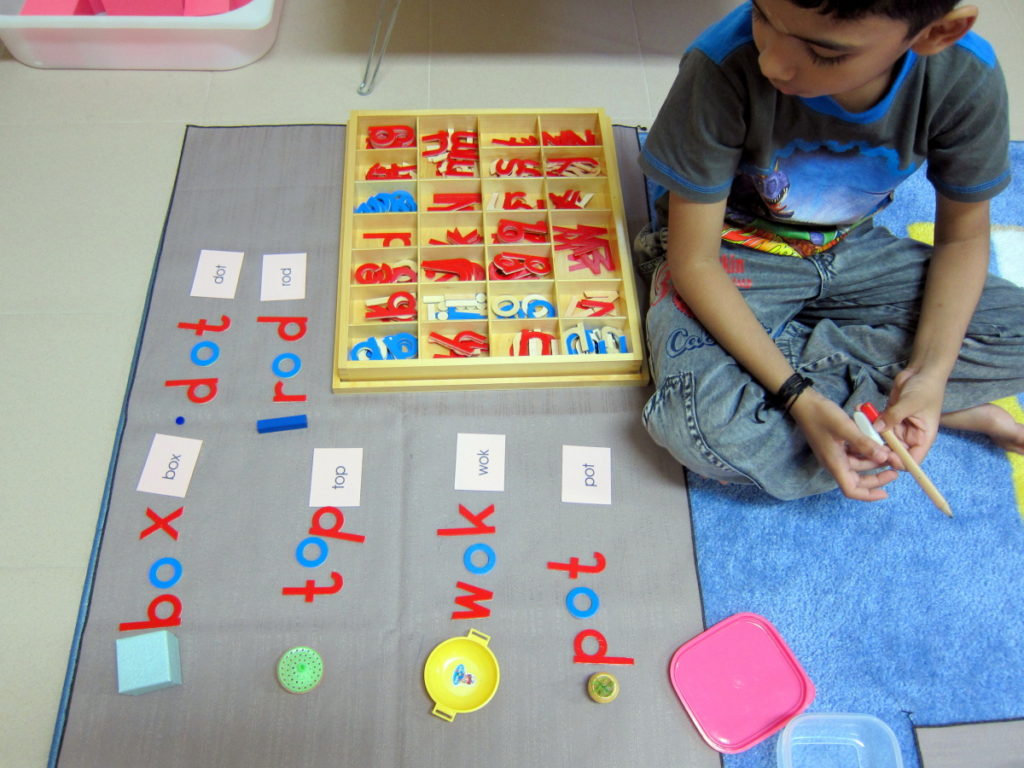
Our Language program is designed to enhance vocabulary and explore both written and spoken language.
Through language-based activities, such as the sandpaper letters and the moveable alphabet, children learn phonetic sounds and how to compose words phonetically. They progress using concrete materials to compose their own written work, read the work of others, and learn to communicate their unique thoughts and feelings.
By carefully structuring the language program, we enable our students to joyfully learn to write and read long before they enter elementary school – and spare them the fear and frustration that too many kids experience when learning these critical skills too late.
-
Mathematics

The Montessori approach to math focuses on building a deeply conceptual understanding of numbers. Our goal is to enable our students to truly understand the connection between real quantities on the one hand, and mathematical symbols and processes on the other.
Rather than introducing arithmetic as a set of abstract operations to be memorised even if not understood, our students master the basics of arithmetic using concrete materials, and they therefore acquire a deep understanding of the meaning of arithmetic operations over time.
Advanced students could even progress to learning division by the time they finish the program. Most importantly, however, by progressing at their own pace, all students learn to enjoy working with numbers and are well prepared to enthusiastically embrace math in elementary school.
-
We expose children to the real world- Field Trips
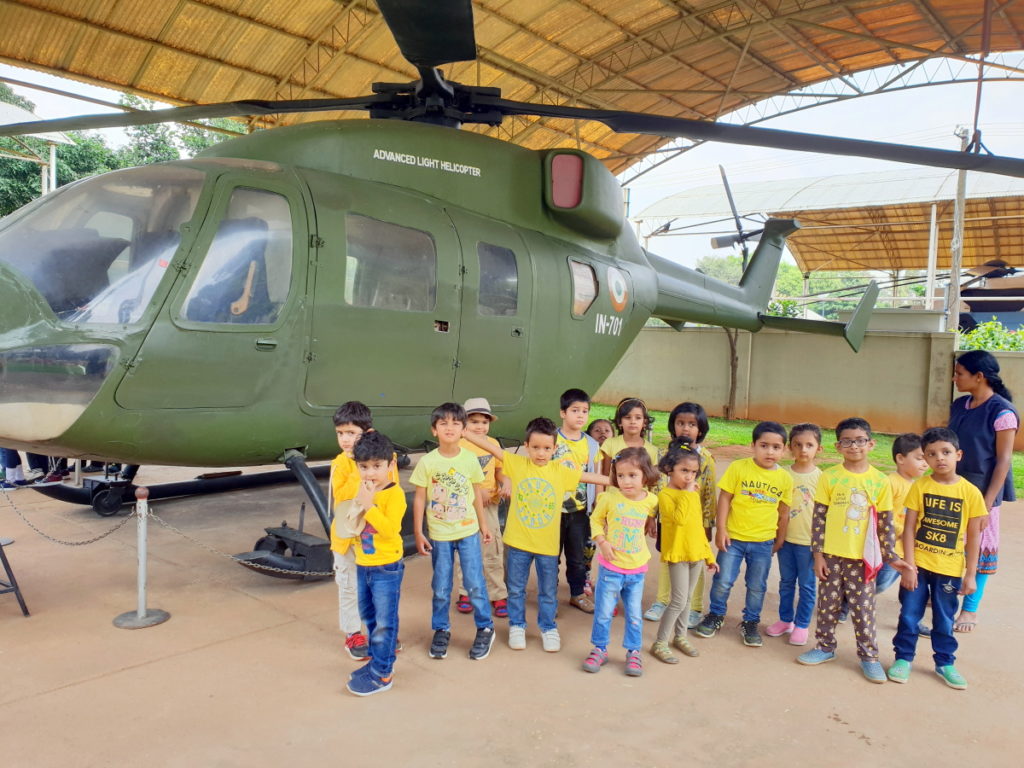
To help children understand the world around them, they are invited to join field trips including Fire Station, Farms, Botanical Gardens, Chocolate Factory, Exploriums etc. By being exposed to a wide range of experiences, we sow the seeds from which future curiosity and learning can grow.
We further follow up these explorations by creating related custom-made Montessori materials that the child can work with (in case they wish to go deeper out of their own interest).
-
Arts, Culture & the World
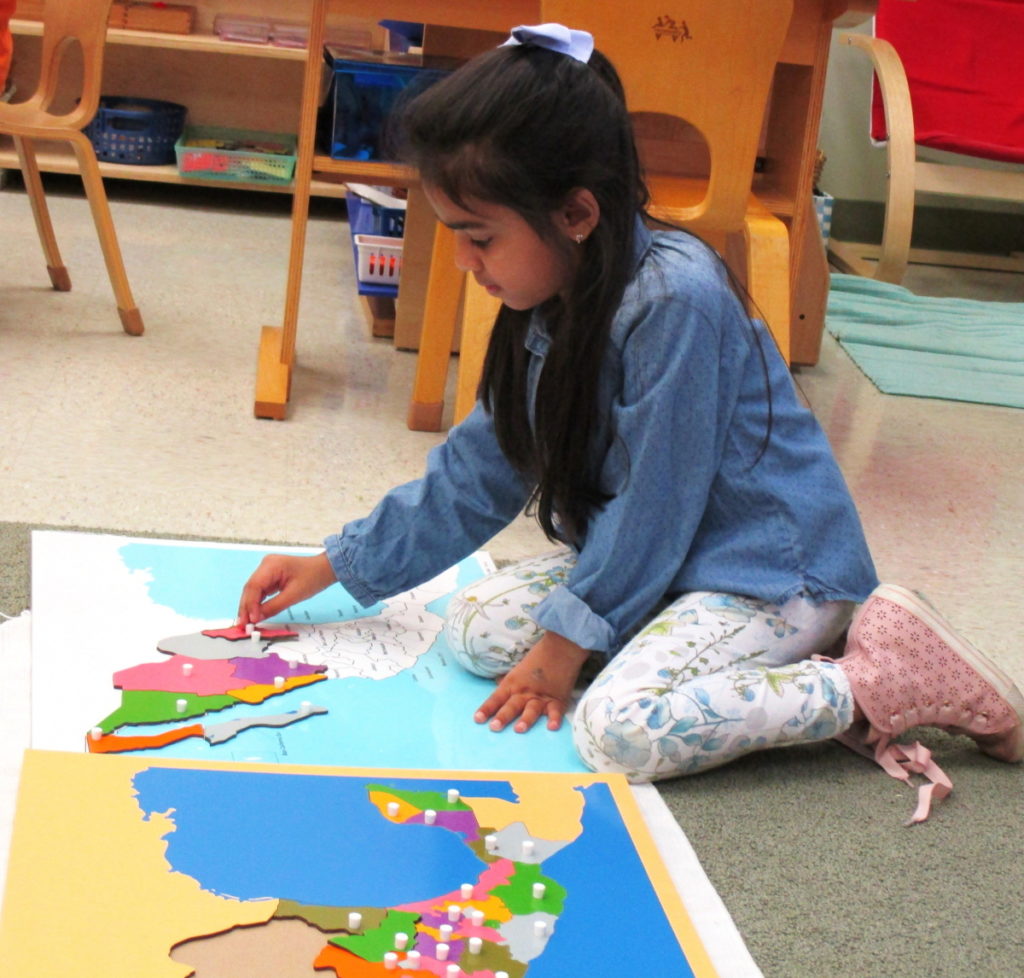
An important difference between students who flourish in later elementary school, and those who may struggle, is the amount of knowledge they have of the world. Thus, in the Montessori Program, our students are exposed to many areas of knowledge: geography, science, history, the world, and so on.
Given how absorbent the child’s mind is at this age, we also introduce scientific vocabulary relating to plants, animals and geographical forms.
Art is integrated throughout our classrooms: there is no clash between academics and creativity. Our students learn key art skills – such as using scissors, gluing, holding a pencil properly, coloring between lines – all while independently exploring the process of creating something beautiful from beginning to end.
-
Comparing Elements Kids to a traditional Pre-school
Traditional Pre-School Classroom Classroom Elements Kids Environment Textbooks, pencil and paper, worksheets and dittos Prepared kinesthetic materials with incorporated control of error, specially developed reference materials Working and learning without emphasis on social development Working and learning matched to the social development of the child Narrow, unit-driven curriculum Unified, internationally developed curriculum Individual subjects Integrated subjects and learning based on developmental psychology Single-graded classrooms Multi-age classrooms Students passive, quiet, in desks Students active, talking, with periods of spontaneous quiet, freedom to move Students fit mold of school School meets needs of students Students leave for special help Special help comes to students Product-focused report cards Process-focused assessment, skill checklists, Mastery Benchmarks
